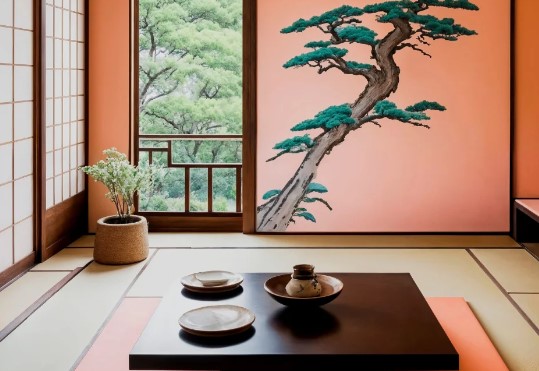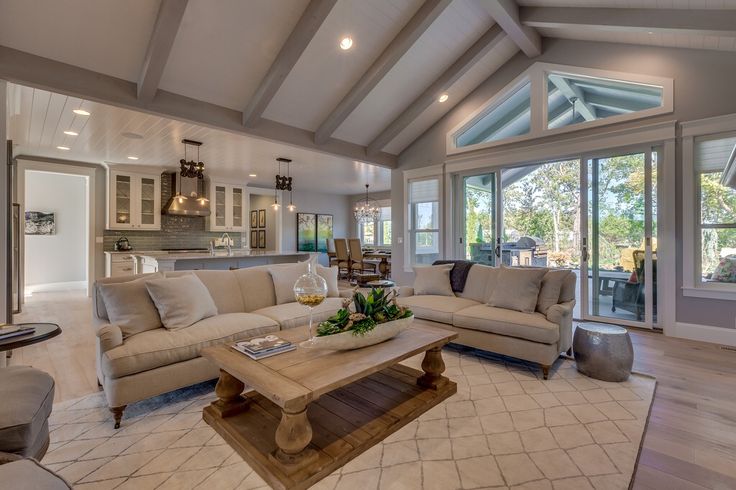Japanese Home Design: Serenity and Minimalism in Every Detail
Japanese home decor, characterized by its minimalist elegance and natural harmony, offers a unique approach to creating serene and functional living spaces. This comprehensive guide delves into the principles of Japanese home design, highlights key products, and provides practical advice on where to purchase these items. Whether you’re looking to redesign your entire home or simply add a touch of Japanese style, this article covers everything you need to know.
Introduction to Japanese Home Decor

Japanese home decor is deeply rooted in traditional design principles that prioritize simplicity, functionality, and a seamless connection with nature. This style is influenced by historical, cultural, and philosophical elements that shape the aesthetic and practical aspects of Japanese interiors.
1. Historical and Cultural Influences
The foundations of Japanese home decor can be traced back to several historical and cultural influences:
- Traditional Japanese Architecture: Influenced by Shinto and Buddhist philosophies, traditional Japanese homes are designed to harmonize with nature. Features such as sliding doors (fusuma), tatami mat flooring, and open floor plans are integral to this style.
- Zen Buddhism: Zen principles emphasize simplicity, mindfulness, and tranquility. These values are reflected in Japanese home design, promoting a peaceful and uncluttered environment.
- Shintoism: Shinto beliefs stress the importance of natural elements and the spiritual significance of the environment. This is evident in the use of natural materials and the integration of indoor and outdoor spaces.
2. Core Elements of Japanese Home Design
Japanese home design is distinguished by several key elements that contribute to its unique aesthetic and functionality:
- Minimalist Aesthetic: Japanese decor emphasizes simplicity and minimalism. Spaces are uncluttered, and each element serves a specific purpose, contributing to a calm and organized environment.
- Natural Materials: Wood, bamboo, stone, and other natural materials are commonly used in Japanese design. These materials create a warm and inviting atmosphere and establish a strong connection with nature.
- Functional Furniture: Japanese furniture is designed with both form and function in mind. Pieces are often low-profile and modular, making them versatile and space-efficient.
- Harmonious Spaces: The design aims to create a seamless flow between indoor and outdoor areas. This approach fosters a sense of tranquility and balance.
Benefits of Japanese Home Decor
Japanese home decor offers numerous advantages that contribute to a harmonious and functional living environment:
1. Enhanced Minimalism
One of the primary benefits of Japanese home decor is its emphasis on minimalism. This design approach helps to reduce clutter and create a sense of calm. By focusing on essential elements and eliminating unnecessary items, you can achieve a more organized and peaceful living space.
2. Connection with Nature
Japanese design principles emphasize a strong connection with nature. The use of natural materials and the integration of outdoor elements create a serene and refreshing environment. This connection to nature promotes well-being and enhances the overall ambiance of your home.
3. Functional Design
Japanese furniture and decor are known for their functionality. Each piece is designed to serve a specific purpose while maintaining aesthetic appeal. This practical approach ensures that your space is both beautiful and efficient, making it ideal for everyday use.
4. Timeless Aesthetic
Japanese home decor is characterized by a timeless aesthetic that remains relevant over time. The focus on simplicity and natural materials ensures that the design does not go out of style. This enduring quality makes Japanese decor a valuable investment for your home.
5. Versatility
Japanese decor elements are versatile and can be seamlessly integrated into various design styles. Whether you have a traditional or modern home, Japanese decor can enhance your space and create a cohesive and balanced look.
Essential Products for Japanese Home Decor
To fully embrace Japanese home design, consider incorporating the following products into your space:
1. Tatami Mats
Tatami mats are traditional Japanese flooring options made from straw and woven rush grass. They provide comfort, natural insulation, and an authentic Japanese aesthetic.
Benefits:
- Natural Insulation: Tatami mats offer natural insulation, helping to regulate temperature and provide a comfortable surface.
- Traditional Look: They add an authentic touch to Japanese-inspired decor, enhancing the overall aesthetic.
- Comfort: The mats provide a soft and comfortable surface for sitting and walking.
Price Range:
- $100 – $300 per mat
Where to Buy:
2. Shoji Screens
Shoji screens are sliding doors or room dividers made from wood and rice paper. They offer light diffusion, privacy, and a traditional design element.
Benefits:
- Light Diffusion: Shoji screens allow soft, diffused light to enter the room, creating a gentle and calming atmosphere.
- Space Division: They provide an effective way to divide spaces while maintaining an open and airy feel.
- Traditional Aesthetic: Shoji screens enhance the authentic look of Japanese decor.
Price Range:
- $150 – $500 per screen
Where to Buy:
3. Japanese Style Furniture
Japanese-style furniture is characterized by its minimalist design and functionality. Key pieces include low-profile tables, modular seating, and streamlined storage solutions.
Benefits:
- Space-Saving Design: Japanese-style furniture is designed to maximize space and efficiency.
- Minimalist Aesthetic: The clean lines and simple forms enhance the overall visual appeal of the room.
- Durability: These pieces are often crafted from high-quality materials, ensuring long-lasting use.
Price Range:
- $200 – $800 per piece
Where to Buy:
4. Zen Garden Kits
Zen garden kits are miniature landscapes that include sand, rocks, and small tools for creating a tranquil and meditative space.
Benefits:
- Stress Relief: Zen gardens provide a simple way to practice mindfulness and reduce stress.
- Decorative Appeal: They add a touch of Japanese tranquility to your home.
- Ease of Use: Zen garden kits are easy to set up and maintain.
Price Range:
- $30 – $100 per kit
Where to Buy:
5. Japanese Lanterns
Japanese lanterns, made from paper or wood, provide soft, ambient lighting for indoor and outdoor spaces.
Benefits:
- Ambient Lighting: Lanterns create a calming and soothing atmosphere with their soft light.
- Versatility: They can be used both indoors and outdoors to enhance various settings.
- Traditional Design: Japanese lanterns add a touch of authenticity to your decor.
Price Range:
- $50 – $150 per lantern
Where to Buy:
Comparison Table
| Product | Use Case | Pros | Cons | Price Range | Features |
|---|---|---|---|---|---|
| Tatami Mats | Flooring | Natural insulation, traditional look | Requires regular cleaning | $100 – $300 | Straw, woven rush grass |
| Shoji Screens | Room dividers, doors | Light diffusion, space division | Limited privacy in some cases | $150 – $500 | Wood frame, rice paper |
| Japanese Style Furniture | Living room, dining area | Minimalist design, functional | Can be expensive | $200 – $800 | Low-profile, modular |
| Zen Garden Kits | Desktop, meditation space | Stress relief, decorative | Limited to small spaces | $30 – $100 | Sand, rocks, small tools |
| Japanese Lanterns | Ambient lighting | Versatile, calming light | Paper lanterns may be delicate | $50 – $150 | Paper or wood construction |
How to Buy Japanese Home Decor Products
Where to Buy
Japanese home decor products are available from a variety of retailers. Here are some recommended sources:
- Wayfair: Offers a wide range of Japanese-style furniture and decor items. Wayfair Japanese Decor
- Amazon: Provides a broad selection of Japanese home decor products, including tatami mats, lanterns, and more. Amazon Japanese Decor
- Etsy: Features handcrafted and unique Japanese decor items from independent sellers. Etsy Japanese Decor
- Pottery Barn: Carries stylish Japanese-inspired furniture and accessories. Pottery Barn Japanese Furniture
- Zen Garden Shop: Specializes in Zen garden kits and related products. Zen Garden Shop
How to Buy
When purchasing Japanese home decor products, consider the following tips:
- Research: Look for detailed product descriptions and customer reviews to ensure you’re getting a quality item. Research the materials and craftsmanship involved.
- Measure: Take accurate measurements of your space and the products to ensure they fit well. This step is crucial for items like tatami mats and furniture.
- Check Return Policies: Review the retailer’s return policy in case you need to return or exchange items. This ensures you have options if the product doesn’t meet your expectations.
- Compare Prices: Compare prices across different retailers to find the best deal. Look for sales or discounts that may be available.
Price Range
Japanese home decor products vary in price based on the item and retailer:
- Tatami Mats: $100 – $300
- Shoji Screens: $150 – $500
- Japanese Style Furniture: $200 – $800
- Zen Garden Kits: $30 – $100
- Japanese Lanterns: $50 – $150
FAQs
What is Japanese home design?
Japanese home design is a style that emphasizes minimalism, natural materials, and functionality. It aims to create serene and harmonious spaces by integrating traditional elements with modern aesthetics.
How can I incorporate Japanese design into my home?
Incorporate Japanese design by using natural materials like wood and bamboo, selecting minimalist furniture, and integrating traditional elements such as tatami mats and shoji screens. Create a calming environment with soft lighting and simple decor.
What are the benefits of Japanese home decor?
Benefits include enhanced minimalism, a strong connection with nature, functional design, a timeless aesthetic, and versatility. Japanese home decor creates a serene and efficient living space.
Where can I buy Japanese home decor products?
You can buy Japanese home decor products from retailers such as Wayfair, Amazon, Etsy, Pottery Barn, and specialized stores like Zen Garden Shop.
What should I consider when buying Japanese home decor products?
Consider factors such as quality, price, style, dimensions, and return policies. Research and compare options to ensure you select products that fit your space and meet your expectations.
By following these guidelines and incorporating Japanese home decor elements into your space, you can achieve a tranquil and aesthetically pleasing environment that reflects the beauty and functionality of Japanese design principles.






